Review 2024

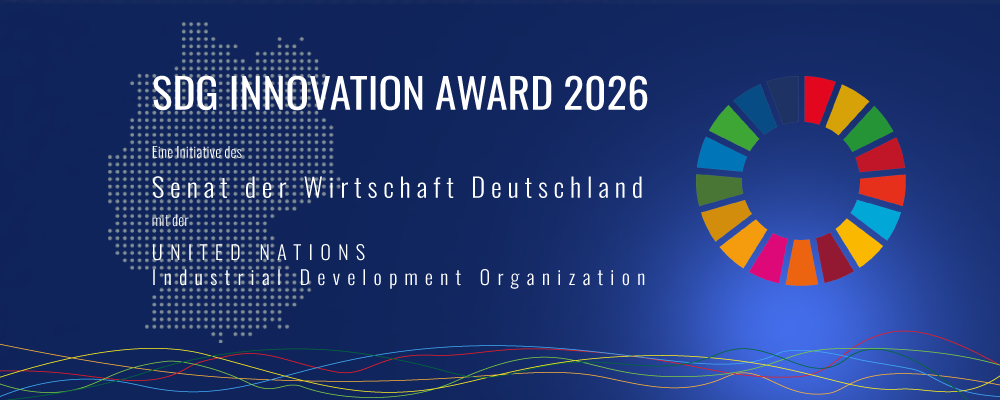
Review 2024
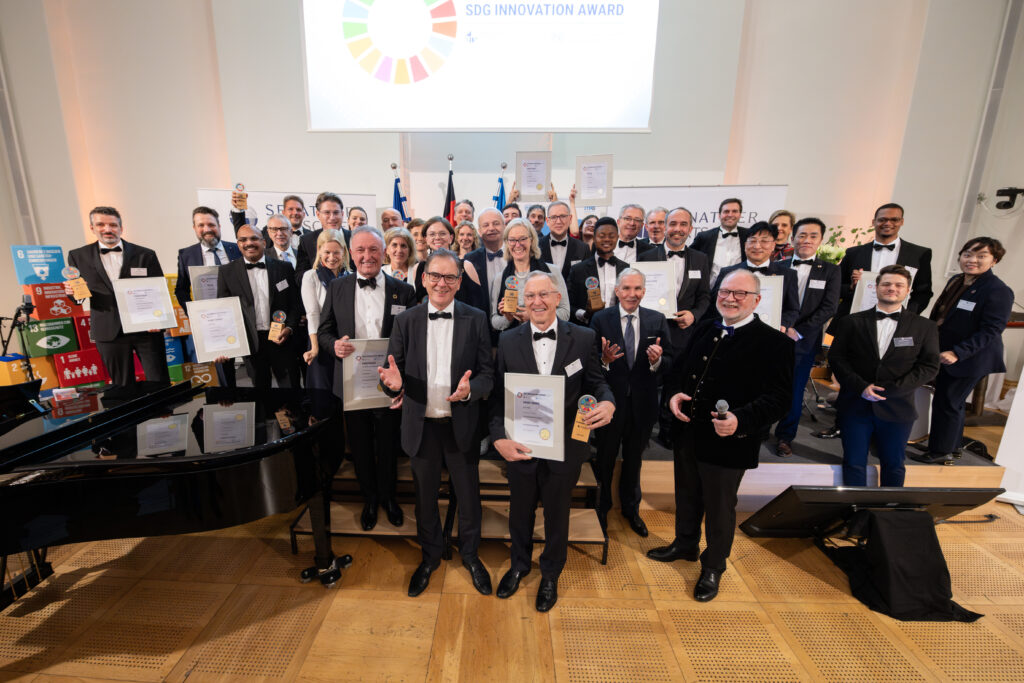
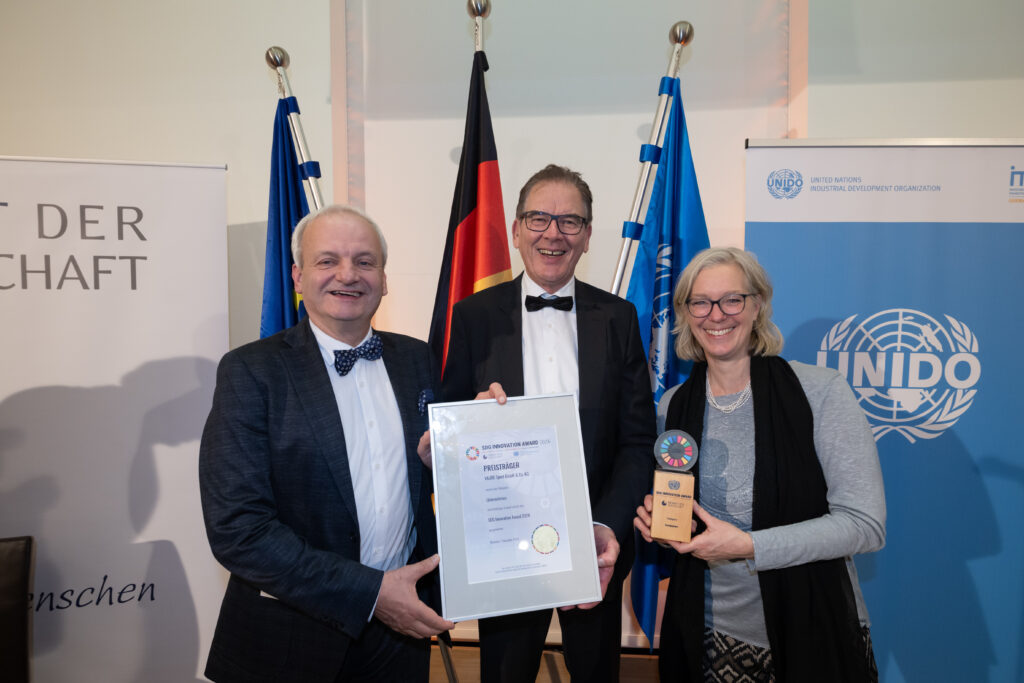
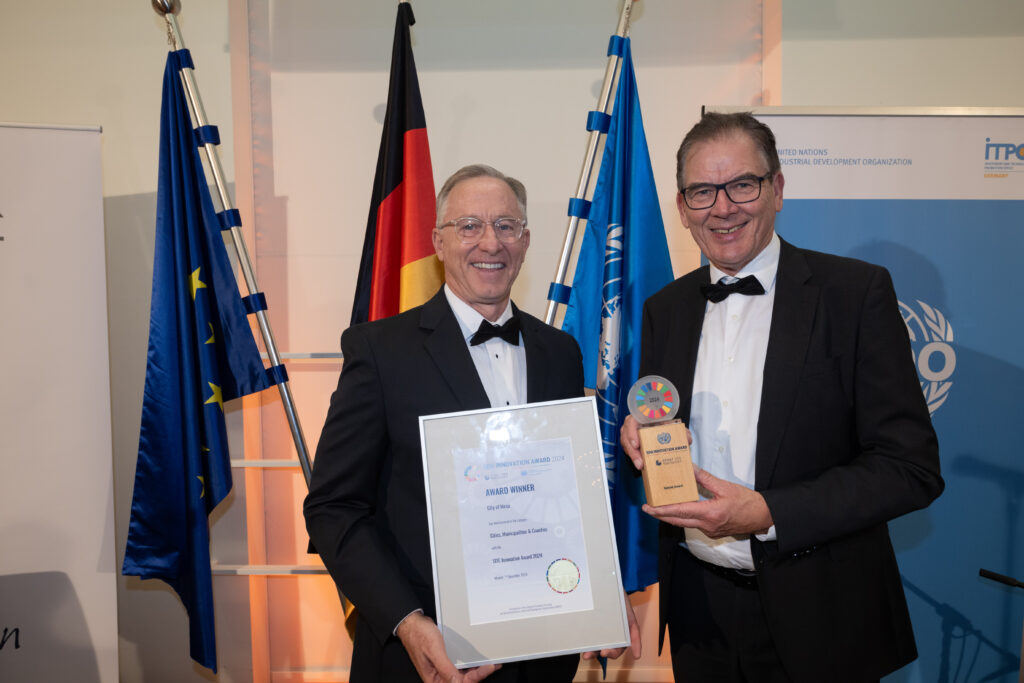
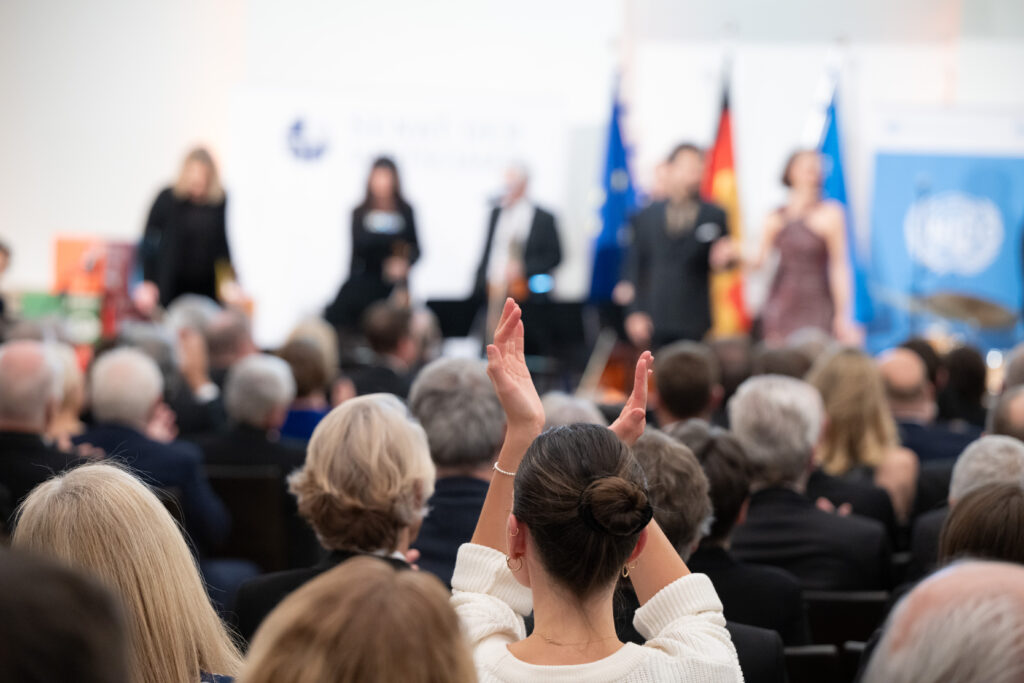
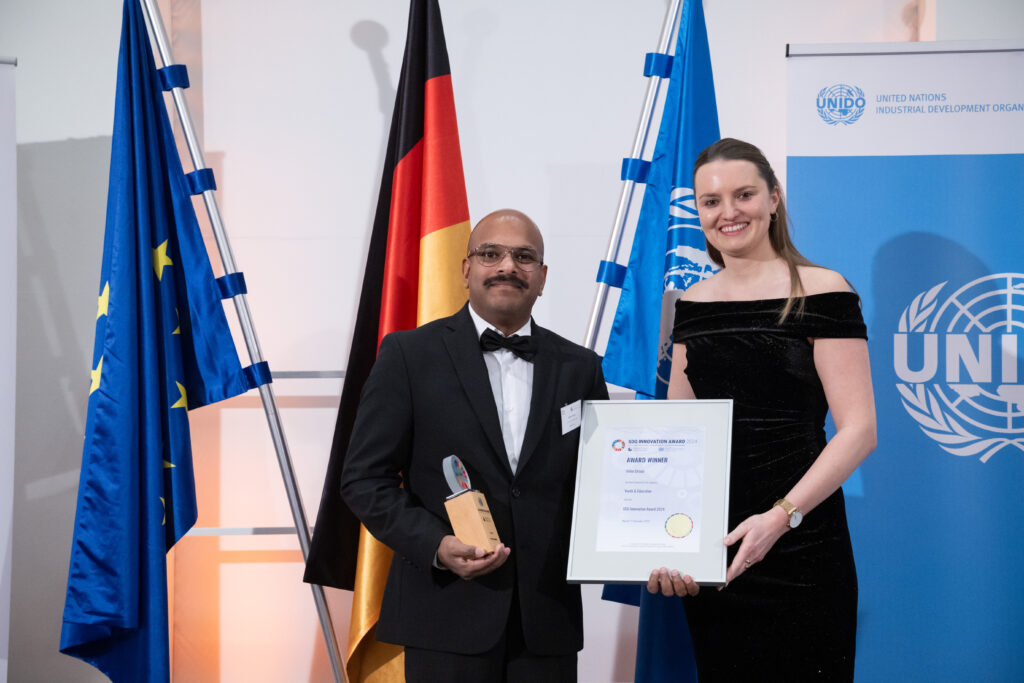
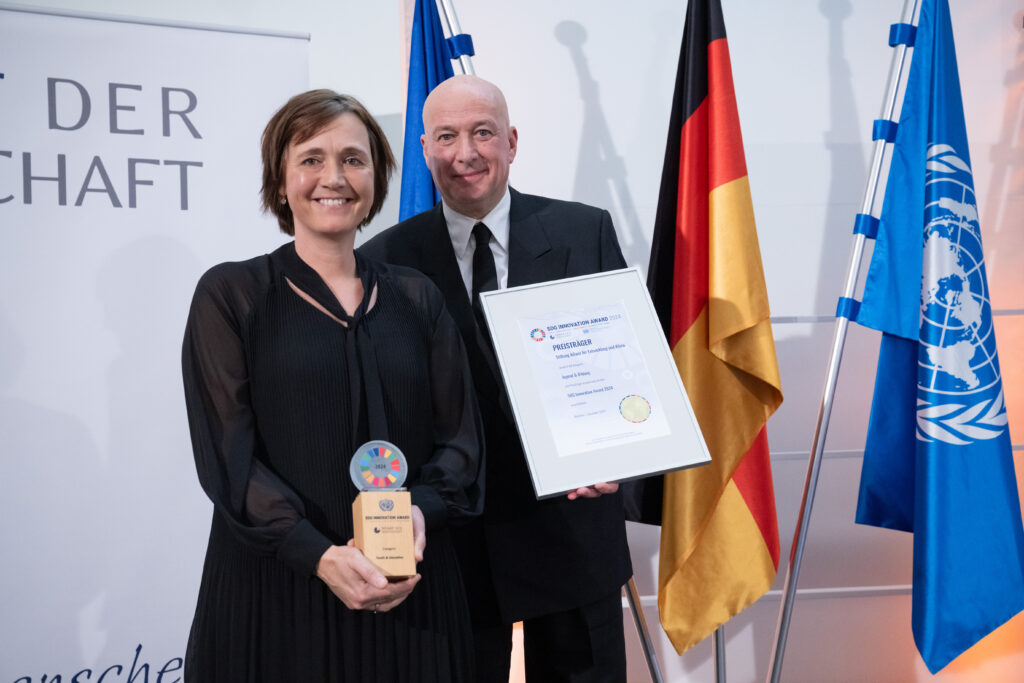
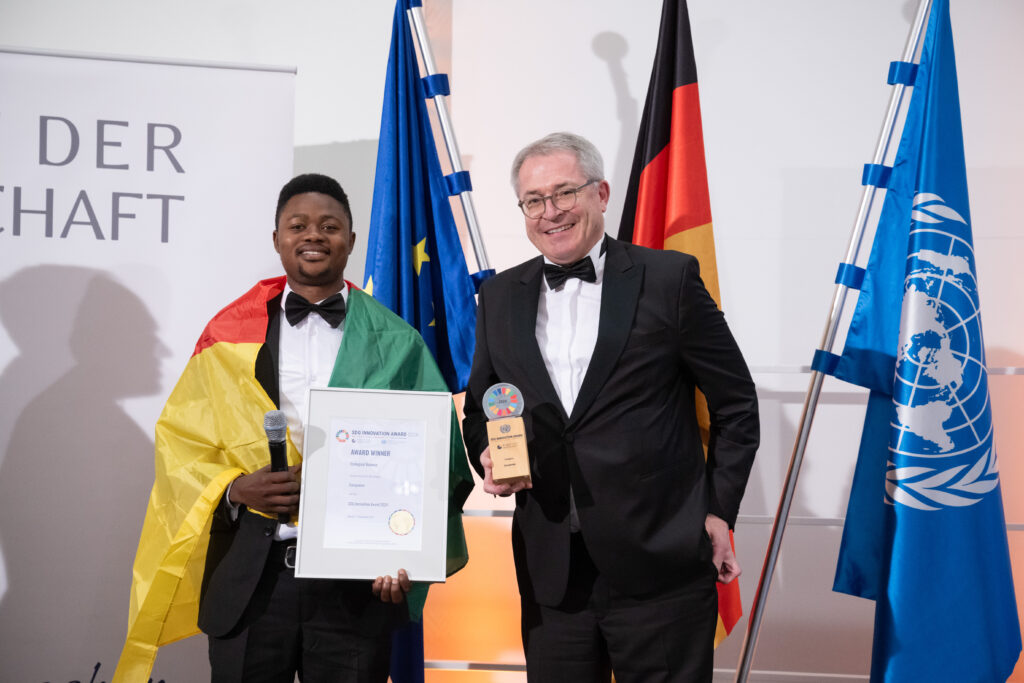
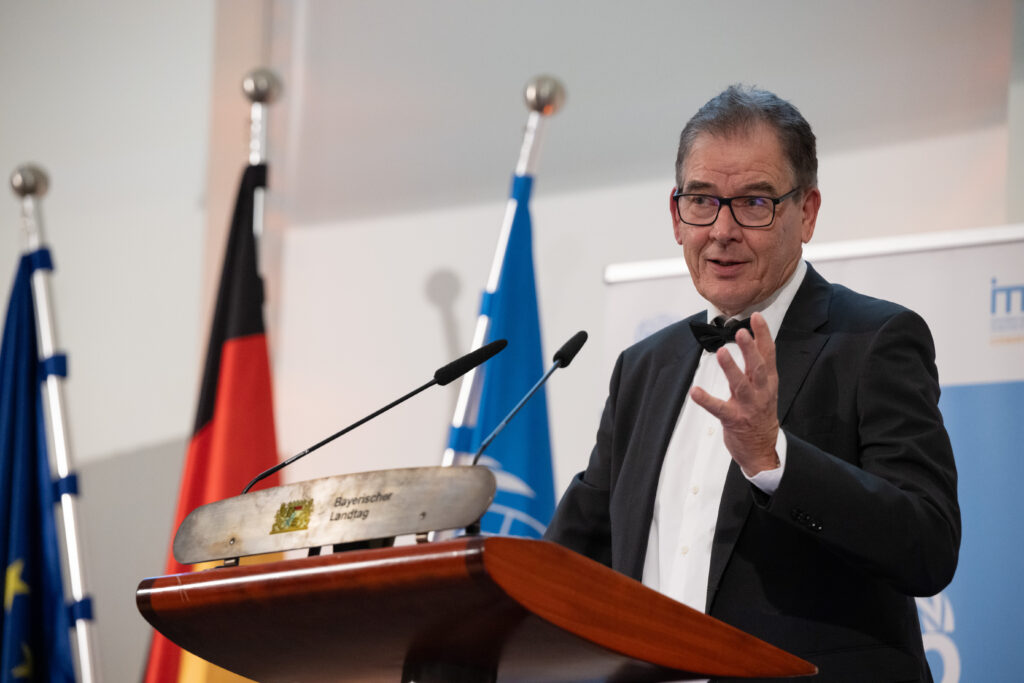
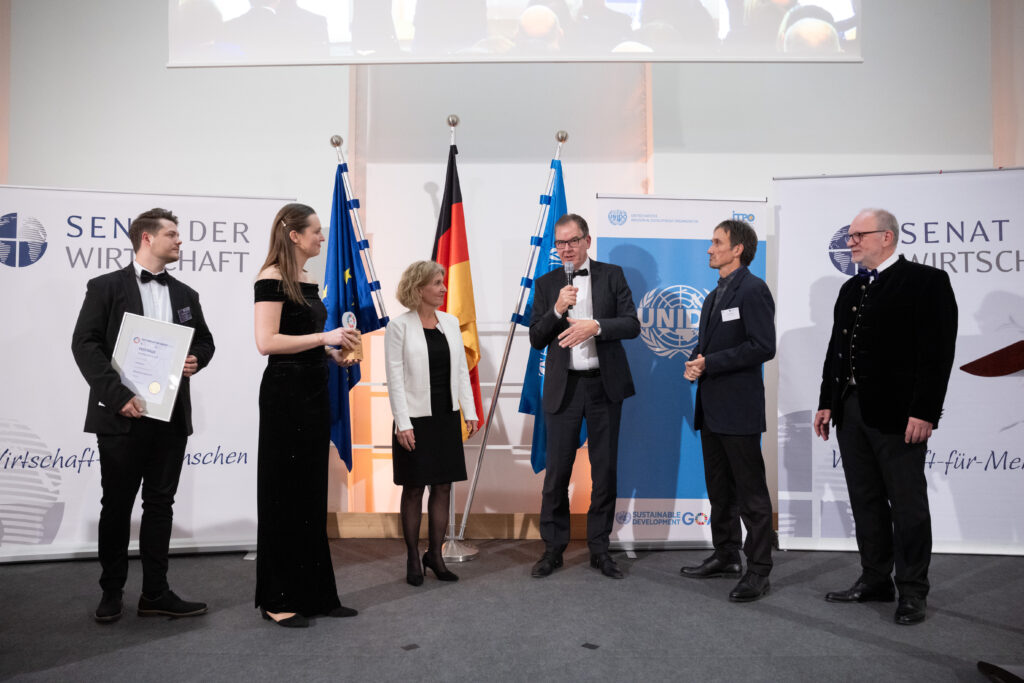
SDG Innovation Award 2024 presented in Munich
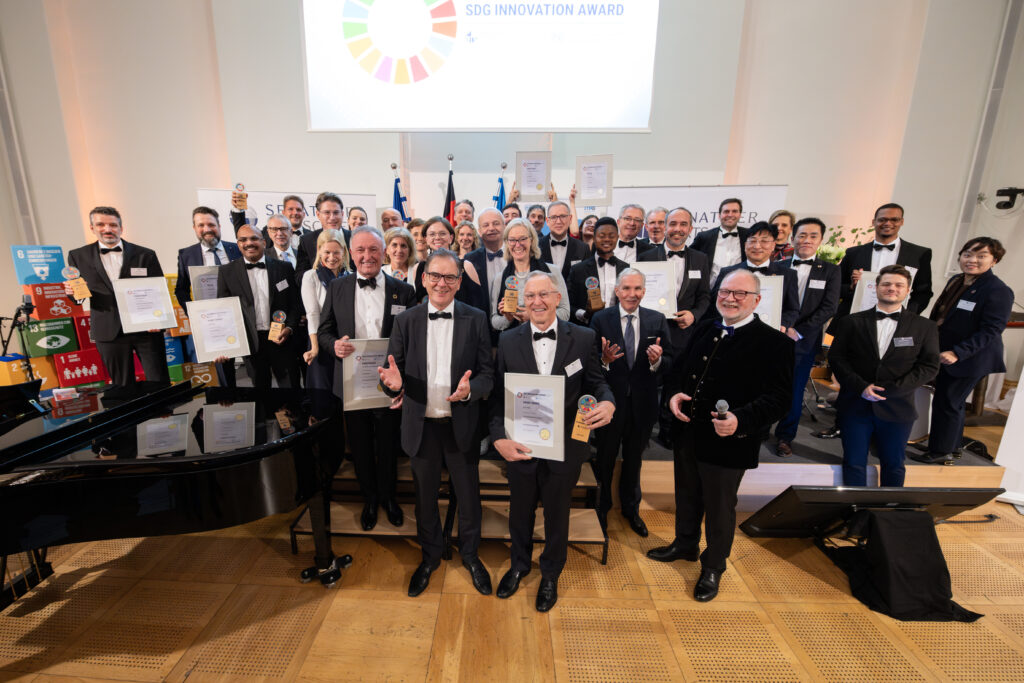
Ceremonial award ceremony for the award winners by the Director General of UNIDO,
Dr. Gerd Müller, with international participation
The Senat der Wirtschaft and the United Nations Industrial Development Organization (UNIDO) drew to third time in a row innovative role models and sustainable pioneers who demonstrate exemplary commitment to sustainable development. They were awarded by the UNIDO Director General Dr. Gerd Müller. Out of Africa, America, Asia and Europe Nominees came together in Munich to appropriately recognize their shared commitment to the global sustainability goals. The growing importance of the award is also reflected in the diversity of submissions, which extend across all continents. Nominees and award winners traveled from Arizona, India, Cameroon, South Korea and Sweden. With 270 applications from 38 countries The SDG Innovation Award has set a new record. The winners were selected by an independent expert jury, which is composed of top-class experts from science, business and international organizations.
The Winner and nominees 2024 at a glance:
Categories
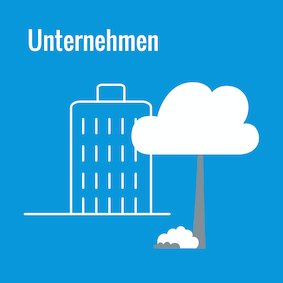
Companies are one of the most important pillars of our society, creating and supporting progress. Activities or projects to promote the achievement of the goals of SDGs are a small step, with a major impact on the entire structure. Exemplary commitment should be recognized in this category and serve as an inspiration and incentive for other economic operators.
Below you will find an overview of the nominated projects with a short profile.
With fair cocoa partnerships, sustainable production and recyclable packaging, Ritter Sport shows how business and responsibility can go hand in hand. This commitment combines ecological sustainability with social justice and makes the company a pioneer in promoting sustainable development.
Ecological Balance from Cameroon shows how innovative nature-based solutions can solve pressing social and environmental problems. It makes a decisive contribution to the fight against desertification, land degradation and the loss of biodiversity.
The Maschinenring Foundation strengthens rural development through knowledge transfer, modern technology and sharing economy. By supporting small farmers in Africa, it promotes food sovereignty, gender equality and innovation and sets a strong example for sustainable development.
From the supply chain to production: VAUDE Sport shows how sustainability and profitability can go hand in hand. The outdoor outfitter is passionately committed to fairness and climate protection. VAUDE has been committed to high social standards and environmentally friendly, energy-efficient production along the entire global supply chain for many years.
WILO shows how the courage to transfer technology enables global sustainability: the manufacturer of pump systems implements innovative solutions for a sustainable water supply and energy efficiency worldwide and at the same time strengthens the skills of the local population. Global challenges such as climate change and resource scarcity require knowledge and equipment.
Aseel connects small entrepreneurs from Turkey and Afghanistan with the digital economy and creates international reach. They focus on small and mid-sized women-led businesses. In this way, Aseel contributes to poverty reduction, gender equality and sustainable consumption in challenging economic environments.
Brands Fashion's ‘From the Field to the Fanshop’ initiative combines sustainable textile production with social commitment: it supports small farmers in India in switching to Fairtrade-certified cotton cultivation and strengthens the education of children in the growing regions. In this way, the project shows how sustainable fashion works – and sensitises fans to fair supply chains.
Improving social issues in agricultural supply chains – that is Elucid's goal. The company is committed to ensuring that farmers in cocoa and coffee supply chains have access to urgently needed healthcare. This enables them to invest more money in their households and education, live better and operate more sustainably.
Responsible production in the industry using the example of effective plastics recycling: with its ‘Nonstop Responsible’ sustainability strategy, MOSCA is pursuing a holistic approach to making the packaging industry sustainable. By minimising material consumption and optimising recycling processes, MOSCA actively contributes to reducing waste and sets standards for an environmentally conscious future in many industries.
Indonesia has one of the highest rates of e-waste in the world. PT Mukti Mandiri Lestari is rising to the challenge: with its growth strategy to increase capacity to 50,000 tons by 2030, the company is a key player in Indonesia's e-waste recycling efforts. By collaborating with telecommunications companies, it contributes to waste reduction and promoting the circular economy, supporting Indonesia's national recycling goals.
As administrative units, cities, municipalities and districts assume responsibility for companies and people. It is important to maintain, promote and further develop cities, communities and districts as attractive locations in the future. The SDGs can serve as a compass here. With this category, we would like to honor cities, municipalities or districts that implement exemplary initiatives to secure the future of their location. The commitment of the administrative units does not necessarily have to end at the city or even state borders. This should serve as an inspiration for other cities, communities or districts and promote exchange.
Below you will find an overview of the nominated projects with a short profile.
With four innovative projects, Buenos Aires shows how environmental awareness, education and digital innovation can drive sustainable development. Together, these projects represent the dynamic intersection of innovation, education and environmental management. They embody the spirit of the SDGs and drive effective change in areas as diverse as sustainable urban living, climate responsibility and global citizenship.
Freetown shows how the active involvement of local citizens fosters the development of sustainable solutions: From biogas from organic waste to the establishment of water kiosks and the promotion of urban farming. Freetowns participatory approach raises awareness of sustainability fosters human security and promotes ownership within the community.
Sustainable urban development is a community task in Lüdenscheid. With the participation of over 100 citizens, the city has developed a sustainable action programme and is actively shaping the strategy in an association dedicated to sustainability. Lüdenscheid shows how a city community can be inspired by the global sustainability goals. She has developed an action program and is actively involved in shaping the strategy with the association “Sustainable living in Lüdenscheid eV”. Lüdenscheid shows how an urban community can be inspired to support global sustainability goals.
In Arizona, the City of Mesa has successfully balanced economic growth with environmental care, showing that desert cities can thrive sustainably while supporting global climate goals, especially through reforestation. Through community engagement, Mesa creates targeted campaigns to address key challenges like heat and drought, defined in the Climate Action Plan of the City of Mesa.
Incheon's masterplan for sustainable, green growth plans five years ahead of the global schedule, combining eco-friendly energy, energy-efficient buildings, and the preservation of tidal flats as CO₂ sinks. Prioritizing social justice, it provides special support for marginalized groups, showing how climate protection and social security can go hand in hand without leaving anyone behind.
As Germany's first "Zero Waste Certified City," Kiel is a pioneer in sustainability. Under the motto "For Kiel and the World. Think globally. Act locally," the city has reduced its CO₂ emissions by 70% since 1990, aims to be climate-neutral by 2050, and supports SDG-oriented projects through a Sustainability Funding Fund.
The Samsø Energy Academy demonstrates in an outstanding way that a complete supply of clean energy is possible. The world's first energy self-sufficient island inspires communities all over the world and provides an important impetus for a global, sustainable future through its international cooperation and educational programs.
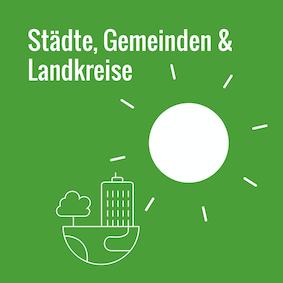
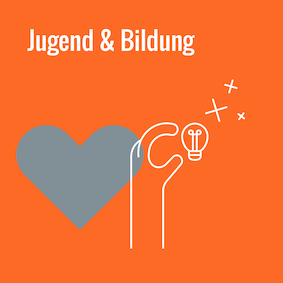
Young people are the future. Their ideas and passion drive change. Guiding them and raising their awareness of sustainable development is pursued in a wide variety of mostly intrinsically motivated initiatives. With an award in this category, we want to draw social attention to these projects and thereby provide motivation and guidance that every effort is a step towards fulfilling the SDGs.
Below you will find an overview of the nominated projects with a short profile.
‘Thinking sustainable development and climate protection together. And act globally' – this is the guiding principle of the Foundation Development and Climate Alliance. It familiarises even the youngest children with the challenges of environmental and climate protection: the comic series ‘My development - our climate!’ tells exciting stories and inspires children to make connections between climate protection and social justice.
Volvo is adressing the shortage of skilled labour in developing and emerging countries. Through practice-orientated vocational training with an overwhelming success-rate, Volvo demonstrates how sustainable economic growth and social mobility in line with the SDGs can be achieved.
With the Akshar Foundation, children become agents of change: In over 50 schools in India, they engage in projects like tree planting and recycling, learning to put the SDGs into practice. Innovative approaches like peer learning and “Earnings while Learning” set inspiring standards which have already attracted international attention.
With FREI DAY, Schule im Aufbruch gives pupils four hours of free time every week to work independently on projects relating to the SDGs. The project is to be established at 13,500 schools in Germany by 2030 in order to anchor the SDGs in the education system in the long term.
SkillUp is a practice-oriented educational concept that develops innovative materials and methods - both digital and analogue. The aim is to develop learners into responsible, sustainable citizens and to give them the ability to develop co-creative solutions to social challenges.
Nomination for the SDG Innovation Award 2024
SDG Innovation nominees
Award 2024
The German Senate of Economy and the United Nations Industrial Development Organization (UNIDO) announce the 22 nominees for the SDG Innovation Award 2024. The nominees for the SDG Innovation Award were selected by an independent expert jury chaired by Ashok Sridharan, former Mayor of the City of Bonn and former President of the international city network ICLEI.
Out of 38 countries Applications were submitted for the SDG Innovation Award 2024. In the three categories “Companies”, “Youth & Education” and “Cities, Municipalities and Districts”, a total of 22 applications nominated for the SDG Innovation Award 2024. The winners will be announced at the award ceremony on December 7, 2024 in Munich.
The nominees are (in alphabetical order):
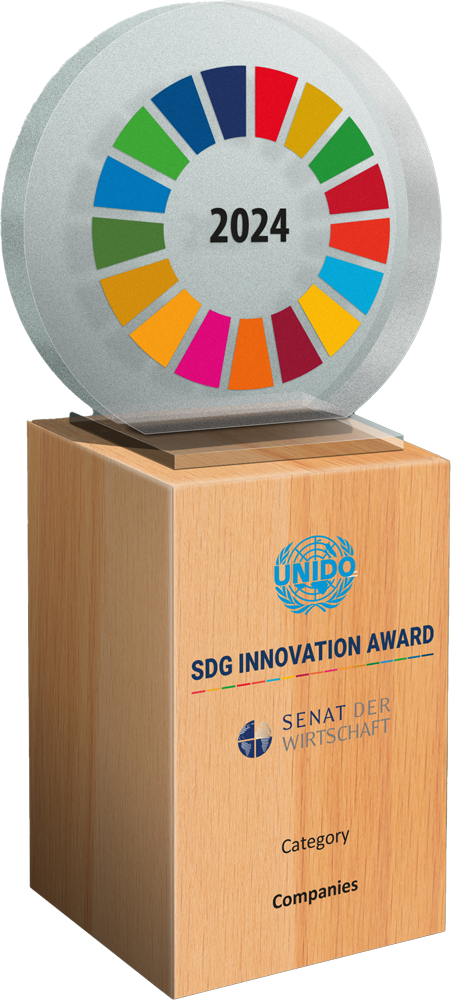
Category Companies:
Alfred Ritter GmbH & Co. KG
Aseel Technology Corporation
Brands Fashion GmbH
Ecological Balance
Elucid GmbH
Maschinenring Foundation gGmbH
Mosca GmbH
PT Mukti Mandiri Lestari
VAUDE Sport GmbH & Co. KG
WILO SE
Category Youth & Education:
Akshar Foundation
Schule im Aufbruch gGmbH
SkillUp eV
Stiftung Allianz für Entwicklung und Klima
Volvo Group
Category Cities/Municipalities/Districts:
Buenos Aires, Argentina
Freetown, Sierra Leone
Incheon, South Korea
Kiel, Germany
Lüdenscheid, Germany
Mesa, USA
Samsø, Denmark
